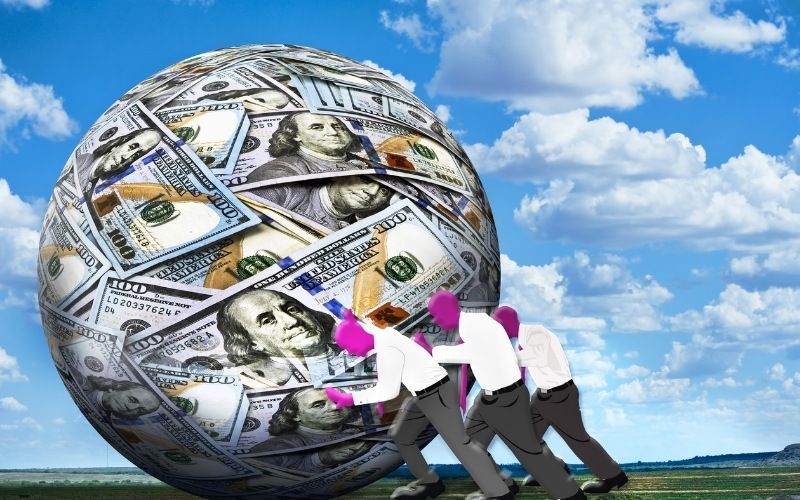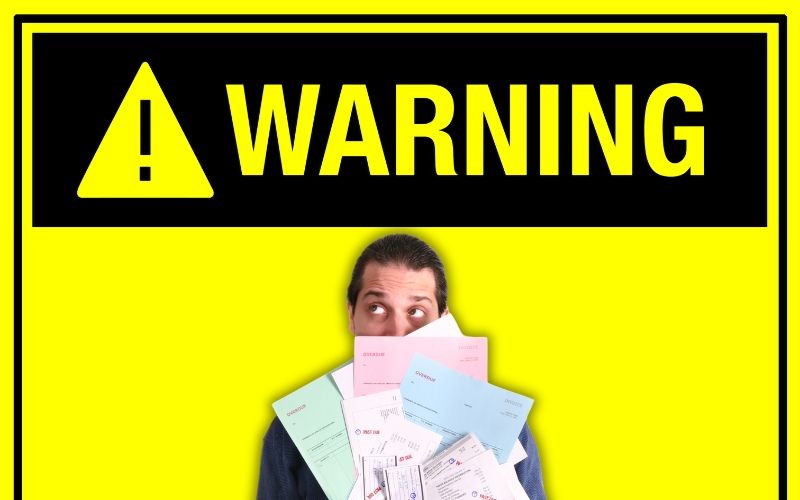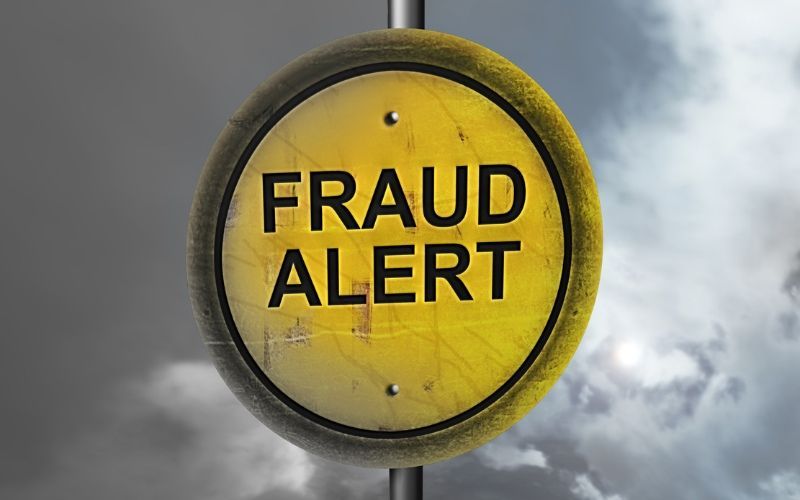10 Questions to Ask Yourself Before Making a Large Purchase
Last Updated: March 21, 2024
Ask Yourself First

Making a significant purchase requires more than just the desire for a new item; it calls for careful consideration of its impact on your life and finances.
Whether you're contemplating an upgrade to your living space or investing in a long-desired luxury, asking the right questions can transform a fleeting desire into a wise investment.
This guide outlines key inquiries to ensure your next large purchase aligns not only with your financial reality but also enhances your overall quality of life.
By taking a moment to evaluate your motives, financial readiness, and the potential value added, you can navigate the complexities of major spending decisions with confidence and clarity.
Don't want to read through? Speak to a debt specialist right now.
Question 1: Do I Need It or Want It?
A need is something that is necessary for your life. A want is not essential and is a desire. Shelter, such as a house or apartment is a need. A want is a “desirable” or amenity. The same goes for a car or a cell phone. Most Americans need a car or a phone, but do you need the newest and fanciest?
If you have a tight budget or a lot of bills, things you want may need to be set aside for a time. That designer purse or new watch would look great but is it worth spending the money on?
Identify whether the purchase is a need or a want. You can ask the same questions for either type of purchase to clarify if the need is truly necessary. If you can afford a want without putting yourself in financial hardship, consider the following questions anyway – it may make a difference to your financial future.
Question 2: Can It Wait 24 Hours?
Think about it, you probably won’t come back and buy it. If you can’t wait 24 hours, you probably don’t need it, and you are most likely making an impulse purchase.
If it is a deal too good to pass up, go back to question #1.
After waiting 24 hours, ask yourself the next question.
Question 3: Can I Afford It?
If the answer is no, it is time to walk away. If the answer is maybe, can you pay cash or pay off a credit card before the grace period is over? If the answer is no, walk away.
The final question is to ask whether the purchase will hurt your ability to purchase a need in the future. For instance, if you have a 20-year old water heater, the odds are that the water heater is going to fail sooner than later. Will buying that ATV mean that the water heater, a definite need, will be out of the question? If the answer is yes, walk away and save up enough to replace the water heater before you purchase something you want.
Question 4: How Many Hours Did It Take to Earn the Money?
Put the item in the context of how long did it take you to earn the money to buy it. Let’s say you have an eye on some $500 shoes. If you make the federal minimum wage, that represents 68 hours of your work life. That’s almost 2 weeks! Are those shoes truly worth the two weeks that it took to earn the money for your style?
If the answer is yes, move on to the next question.
Question 5: What are the Additional Costs?
Most people are aware that the cheapest part of buying a vehicle or house is actually buying it. The rest of the cost is in the maintenance and upkeep. Consider that if you buy a high-end car, even a used one, means that you will lay out far more money in repairs than you will on a less fancy car. Even your windshield replacement and oil changes will cost more. Replacement parts are also more expensive than a lower-end car. Insurance is another factor. The more expensive the car, the more expensive the insurance.
If you buy those $500 shoes and put them on your credit card without paying them off, let’s see how long it will take to pay them off.
Cost of shoes: $500
Interest rate: 16%
Time to pay off: 6 months
Interest paid: $20.89
Total cost: $520.89 (or more than 72 hours at minimum wage)
A sub-question to consider is “what else can I spend this money on?” Five hundred twenty dollars will buy several weeks of carefully selected groceries. You might be better off putting $500 into an emergency account against the water heater failing, or pay down some outstanding bills.
If the costs are more than you can afford, this item falls within the want category.
Question 6: Is This the Best Value?
If an item has caught your eye, is it at the best possible price? Can you find a used item that will serve just as well? Larger cities often have high-end used clothing boutiques that offer great deals on gently used designer clothing.
Take some time and research different stores, including online venus. If you are looking at a big-ticket item, check out both positive and negative reviews as well as publications like Consumer Reports. You might be buying a name brand item that has a reputation as a lemon. Having to have it immediately without taking the time to check for the best deal is the sure sign of an impulse purchase.
Question 7: Where Am I Going to Put This?
If you are buying something large, ask where you are going to put it. An RV can make camping a breeze, but where are you going to park the thing? Will you have to pay storage fees?
Will that new couch even fit through the door?
Question 8: Does It Have a Return Policy?
If you are still having doubts, find out what the return policy is. You may get the item home and decide it just doesn’t fit right. Be aware that some companies charge a restocking fee or offer store credit instead of money back. You also want to check on warranties (and recalls).
The odds are that if you aren’t 100% certain that you want the item and you buy it anyway you will eventually come to regret the expenditure.
Question 9: Does This Have Real Use?
We all have stuff that takes up space, collects dust, and frankly, could burn up and we’d never miss it. This question is particularly useful when deciding whether or not to buy a knickknack.
Not everything has to be useful, but buying items because you think they are cool or pretty is not cost-effective.
Question 10: Have I Regretted Purchases in the Past?
If you have a closet, garage, or storage shed full of regret purchases, you may have an issue with impulse shopping. Slow down, take your time, work through the questions above and make an informed decision.
If your credit cards are full of impulse purchases and you are having trouble making your minimum payments, consider giving the debt settlement specialists at Pacific Debt a call.
FAQs
-
My budget is tight. Are there any creative ways to pay for a large purchase?
If a large purchase is a priority but money is limited, get creative with ways to save up or earn extra income. Take on a side hustle, sell unused items around your home, create a change jar for spare coins, or come up with a progress rewards system as you hit savings milestones. Every little bit helps when budgeting
-
How can I get the best deal on a big-ticket item?
Do your homework first. Search online for coupons, promo codes, and cashback opportunities before making a large purchase, even for physical items bought locally. Sign up for email alerts so you're notified of upcoming sales. Consider buying used, refurbished or open box items which can provide deep discounts.
-
I found a great financing promo offer. Is it free money?
If something sounds too good to be true, it probably is. Read all terms and conditions carefully rather than jumping on low intro rates or deferred interest deals. Make sure you understand exactly when promotional periods end and what interest rates apply afterward. Don't get trapped paying more in fees or interest than the purchase itself over time
-
What purchases tend to provide the best long-term value?
In general, steer clear of buying luxury or rapidly depreciating items on credit that provide little practical use over time. A reliable used car that retains value beats out the latest model with all the bells and whistles. Invest in professional development courses or tools related to growing your career rather than status symbol purchases to impress others.
Conclusion
Making major purchases can be exciting, but avoid letting emotions or sales pressure overrule sound judgment. By first budgeting properly, separating wants from needs, understanding all your financing options, and doing your due diligence, you set yourself up for solid decision-making. Don't agonize over buyer's remorse - being an informed consumer is the best way to invest in purchases that provide true lasting value and align with your financial goals.
If debt balance creep becomes unmanageable, don't hesitate to reach out. Our financial experts can advise on managing payments, consolidating credit card balances, and creating a customized debt payoff plan. We're here to help you gain control of your finances.
The key is staying focused on the big picture. Carefully weigh each purchasing decision against your overall financial health and personal priorities. And never feel embarrassed to walk away, even at the last minute. Protecting your financial future is what matters most.
Pacific Debt Relief
If you’d like more information on how to get out of debt, we are happy to help. We will explain all your options and help you decide which is the best option for you. We can even refer you to trusted partners who can better meet your needs. If you have more questions, contact one of our debt specialists today.
The initial consultation is free, and our debt experts will explain your options to you.
Are you ready for debt relief help now?
Get Free Consultation- Accredited by Better Business Bureau with BBB A+ rating(4.93 rating and 1678 reviews)
- US News and World Reports and Bankrate ranked Pacific Debt Relief as one of “The Best Debt Relief Companies of 2024”
- 6.9 star rating by BestCompany.com (over 2379 client reviews)
- 4.8 star rating by TrustPilot based (over 1613 verified consumer reviews)
- ConsumerAffairs.com Accredited (over 544 verified reviews with an average rating of 5 stars)
- A Top 10 Rated Company by TopTenReviews.com , ConsumersAdvocate.com and Top10debtconsolidation.com
- 4.6 star rating by Google (229 client reviews)
- 100% rating by SuperMoney (9 client reviews)

Pacific Debt Relief
750 B Street Suite 1700
San Diego, CA 92101
Hours of Operation
Mon-Thurs: 6am - 7pm PST
Friday: 6am - 4:30pm PST
Saturday: 7:30am - 4:30pm PST
Clients
Phone: (877) 722-3328
Fax: (619) 238-6709
Email: cs@pacificdebt.com
Non-Clients
Phone: (833) 865-2028
Fax: (619) 238-6709
Email: inquiries@pacificdebt.com
"To eliminate debt one household at a time, while placing people first." - Pacific Debt
© 2024 Pacific Debt Inc. dba Pacific Debt Relief, all rights reserved.
California Privacy Policy |  Do Not Sell My Personal Information
Do Not Sell My Personal Information
GLBA Privacy Notice | CDRI Accredited Member
*We do not discriminate on the basis of race, color, religion, sex, marital status, national origin or ancestry.
*Please note that all calls with the company may be recorded or monitored for quality assurance and training purposes.
*Your visit to our website may be monitored and recorded from essential 3rd party scripts.
*Clients who make all their monthly program deposits pay approximately 50% of their enrolled balance before fees, or 65% to 85% including fees, over 24 to 48 months (some programs lengths can go higher). Not all clients are able to complete our program for various reasons, including their ability to save sufficient funds. Our estimates are based on prior results, which will vary depending on your specific circumstances. We do not guarantee that your debts will be resolved for a specific amount or percentage or within a specific period of time. We do not assume your debts, make monthly payments to creditors or provide tax, bankruptcy, accounting or legal advice or credit repair services. Pacific Debt is not a credit repair firm nor do we offer credit repair services. Our service is not available in all states and our fees may vary from state to state. Please contact a tax professional to discuss potential tax consequences of less than full balance debt resolution. Read and understand all program materials prior to enrollment. The use of debt settlement services will likely adversely affect your creditworthiness, may result in you being subject to collections or being sued by creditors or collectors and may increase the outstanding balances of your enrolled accounts due to the accrual of fees and interest. However, negotiated settlements we obtain on your behalf resolve the entire account, including all accrued fees and interest. C.P.D. Reg. No. T.S. 12-03825.









